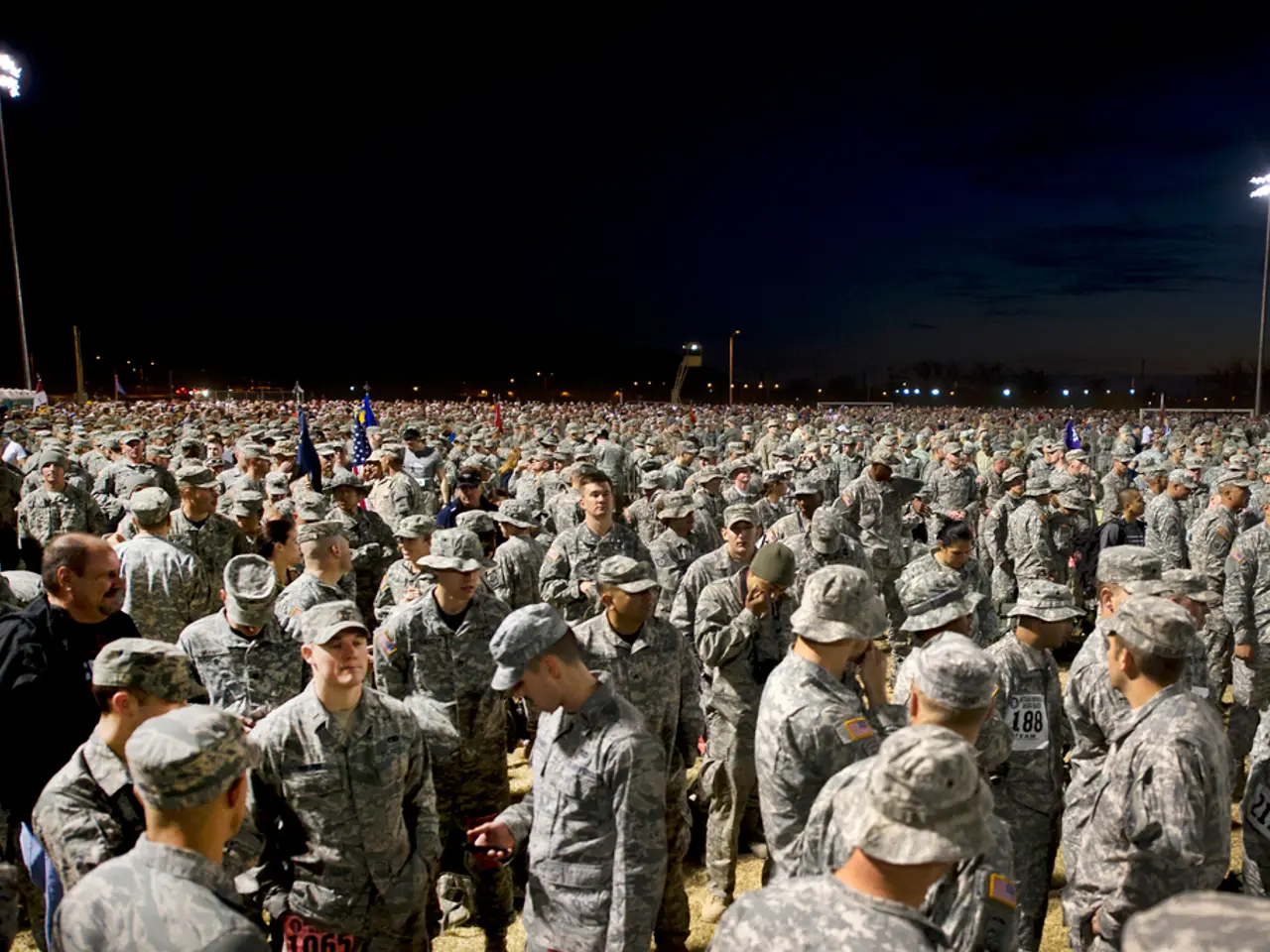The U.S. Wants a Free Pass: Trump Advocates for Exception from Higher NATO Spending Target
United States Seeks Exemption from Increased NATO Budget Contribution Requirement, Proposed by Trump
Quick Take: Under Trump, the U.S. wants an exception to the increased NATO spending target of 5% of GDP. Trump believes the U.S. shouldn't be held to the same standard as European allies, who should boost defense spending, as per his argument that the U.S. has been shouldering the financial responsibility for NATO's collective security [1][2].
The Download: The upcoming NATO summit is set to agree on a significant upsurge in defense spending by NATO member countries, under pressure from U.S. President Donald Trump. However, Trump has made it clear that this five-percent target should not apply to the United States itself [3].
When asked about increased spending by NATO members, Trump said, "I think they should do that. I don't think we should." He claimed that Washington has long supported NATO and often bears "almost 100 percent of the costs." Trump criticized Spain and Canada for their low defense spending [3].
According to Trump, European countries like Spain should aim for the five-percent target. However, he suggests the U.S. will not have to follow the new standard [1][2]. The U.S. already spends almost 3.5 percent of its GDP on defense [3].
At the NATO summit in The Hague in June 2025, most NATO allies agreed to formally adopt a new defense spending target consisting of 3.5% of GDP on core defense items like weapons and troops, and another 1.5% on related security investments such as infrastructure and cybersecurity [1][2][4]. These increases are designed to enhance NATO’s military capabilities, especially European defense capacities, to tackle new security challenges [1][2][4].
However, Trump considers the U.S. role differently. He maintains that while European members should meet the higher five-percent target, the U.S. should not be bound to the same standards [1][2][3]. Trump's stance is instrumental in pushing European allies to boost their spending; simultaneously, it forms the basis for the U.S. seeking an exemption or a lower standard for itself [1][2][3].
The Spanish government is currently blocking an agreement on the increased spending target. Diplomats are engaged in continuous negotiations, which may extend over the weekend leading up to the Tuesday meeting at the NATO summit [3]. Spanish Prime Minister Pedro Sánchez, in a letter to NATO Secretary General Mark Rutte, termed the five-percent defense expenditure target as "unreasonable' and "counterproductive." This move has stirred dissension among other NATO allies, as it risks governing the carefully planned compromise for the NATO summit [3]. European NATO countries fear that Trump could sever ties with NATO if his demands aren't met [3].
[1] The New York Times: US Reliability as World Police Can’t be Tested[2] The Guardian: Donald Trump Grills NATO Allies for Increased Defense Spending[3] Reuters: Trump Expected to Press NATO Members for Higher Defense Spending[4] The Associated Press: NATO Readies Radical Defense Spending Increase[5] Time Magazine: Why Trump Keeps Bashing NATO Allies for Insufficient Defense Spending
- Despite the European Union members being pressured to increase their defense spending to meet the new NATO target of 5% of GDP, the United States, under Donald Trump's leadership, is advocating for an exception, believing it should not be held to the same standard as its European allies due to the U.S.'s historical financial burden in upholding NATO's collective security.
- European Union countries, such as Spain, are expected to aim for the higher defense spending target, while the United States, under President Trump, is insisting on not being bound by the same standards, asserting that while it supports NATO, it should not shoulder the brunt of the costs for increased spending, as suggested by the continued negotiations leading up to the NATO summit.








